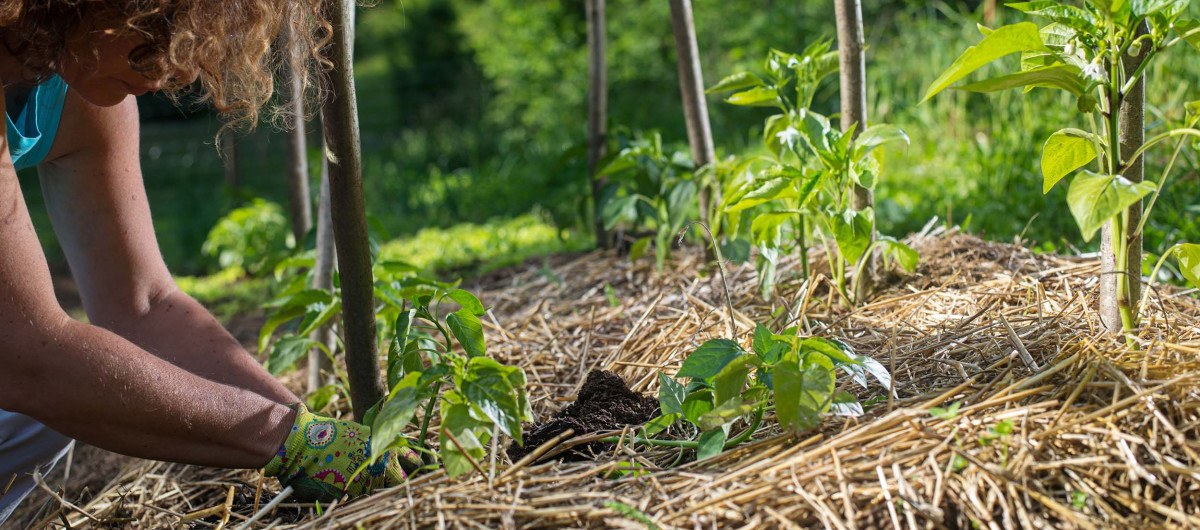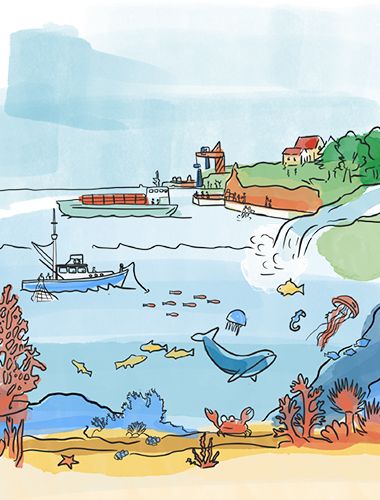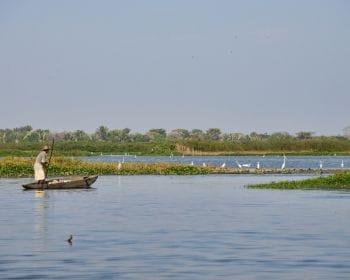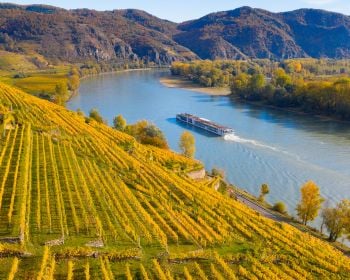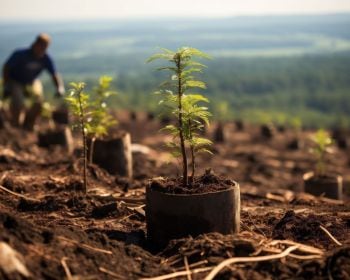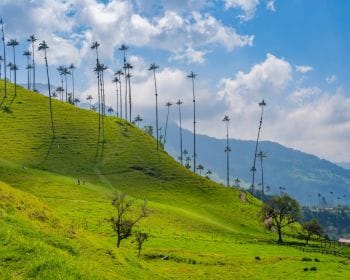Natural capital and biodiversity
Biodiversity refers to all the plant and animal species making up the living ecosystems on earth. The erosion of this “natural capital” - the economic value of nature - poses a clear danger to us all. It also creates major systemic and transitional risks for investors, and thus for economies. To help protect biodiversity worldwide, BNP Paribas is committed to implementing dedicated policies, participating in coalitions and financing actions with a positive impact.
Restoring biodiversity, Sustainable Development Goal #15
The extinction of different species and the erosion of biodiversity hinder our progress in achieving 80% of the UN Sustainable Development Goals (SDGs), including those related to poverty, hunger, health, water, climate, oceans and land. Biodiversity loss is therefore not only an environmental issue, but also a developmental, ethical and economic issue.
According to the most recent report of the UN Intergovernmental Platform on Biodiversity and Ecosystem Services (IPBES), one million plant and animal species are threatened with extinction today.
1 million
The number of species threatened with extinction according to IPBES
Why is biodiversity important?
Biodiversity plays a crucial role in maintaining natural capital. It contributes to the stability of ecosystems, allowing their regeneration and resilience to external disruptions. Each species has a specific function in the ecosystem, whether through its involvement in soil renewal, pollination, water storage or climate regulation.
Biodiversity also acts as a shield against disease. For example, a greater diversity of animal species may reduce the likelihood of disease transmission to humans.In addition, biodiversity is an infinite source of scientific knowledge and medical discoveries based on living beings and plants in natural environments.
Finally, biodiversity is of considerable economic importance. It provides natural resources such as wood, seafood, medicinal plants and many other products. It also supports entire industries such as agriculture, fishing, pharmaceuticals, tourism and many others.
BNP Paribas, official sponsor of the United Nations Ocean Conference
Protecting the Ocean was raised to the world’s stage at the third United Nations Ocean Conference (UNOC) co-organised by the countries of France and Costa Rica in Nice, France in June 2025. BNP Paribas was the only bank as official sponsor of the summit and several of its experts took part in talks and round tables (programme available here). On the political front, important decisions were expected, particularly on the Treaty on the High Seas, which 56 countries had signed at the end of the summit, with 14 others committing to do so. Nearly 100 countries have published a joint declaration for a global treaty to combat plastic pollution and negotiations will continue in Geneva in August 2025.
Beyond the major diplomatic negotiations, blue finance took center stage at the Blue Economy Finance Forum (BEFF) in Monaco, which was part of the UNOC side events. The BEFF’s objective? To mobilise funding to conserve and sustainably use the Ocean, while also contributing to the development of a sustainable and regenerative blue economy. A pioneer on this subject, BNP Paribas was one of the first banks to publish a public position – as early as 2019 – in line with Sustainable Development Goal (SDG) 14 “Life Below Water” to contribute to the protection of marine ecosystems through its financing, investments, and philanthropic initiatives. In June 2025, the Group published a new document "For A Sustainable Blue Economy: Five Years Of BNP Paribas' Initiatives To Protect The Ocean".
Following the UNOC, BNP Paribas believes now more than ever that the major challenges facing the Ocean can only be addressed through global, multi-stakeholder and multi-sector action and intends to continue accelerating the transition towards a sustainable blue economy.
Addressing climate change and biodiversity loss simultaneously
Preserving biodiversity in three key figures
in funding for businesses contributing to the protection of terrestrial and marine biodiversity at the end of 2024.
in funding for the maritime ecological transition at the end of 2024
The original target of €1 billion by the end of 2025 has already been exceeded.
invested in start-ups committed to ecological transition by 2025.
The BNP Paribas Group also invests in start-ups committed to the ecological transition. These investments with a positive impact on biodiversity come on top of several actions carried out within the Group and encouraging the integration of assessment criteria throughout all of its activities. BNP Paribas is therefore in dialogue with all its clients in sensitive countries to encourage their own commitments against deforestation. In addition, by the end of 2025, BNP Paribas will have assessed all its corporate clients on biodiversity-related criteria.
ESG analysis traditionally focuses on carbon, but less so on the modification of bee habitats, the destruction of mangroves or the decline of fish stocks. Through our work on biodiversity data and new measures, we intend to take action and encourage the consideration of natural capital in investment decisions.
Collective action for nature preservation
Coalitions of stakeholders committed to nature
Aware that it cannot act alone against this challenge, the Group is part of various coalitions at the global and local levels, such as Entreprises pour l’Environnement (EPE), the association behind the Act4Nature initiative. EPE brings together companies, public authorities, scientists and environmental associations to develop collaborative solutions and create a collective, international movement that will protect, enhance and restore biodiversity.
In 2020, BNP Paribas took part as co-chair of an informal workgroup put in place to structure the Task Force for Nature-related Financial Disclosures (TNFD). Created to complement the TCFD on climate, it aims to bring global consistency to the reporting of nature-related business risks and opportunities. Following several beta releases of the framework, developed with an open innovation approach to improve relevance, usage and implementation by stakeholders, the TNFD released its final recommendations in 2023.
Raising awareness for the climate and biodiversity
The Group strives to raise awareness among our employees in 64 countries around the world of its environmental ambitions through vast internal trainings that address climate change, biodiversity impacts, and the key themes of sustainable finance. The BNP Paribas Foundation, for its part, is working more broadly to raise public awareness of these issues, in particular by supporting research and philanthropy related to biodiversity. The Foundation brings together public authorities, scientists, companies, NGOs and private citizens in order to provide a comprehensive overview of the challenges and actions necessary to protect animal and plant species currently threatened with extinction.

